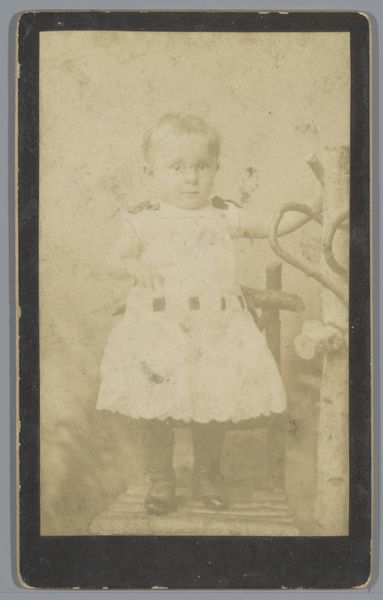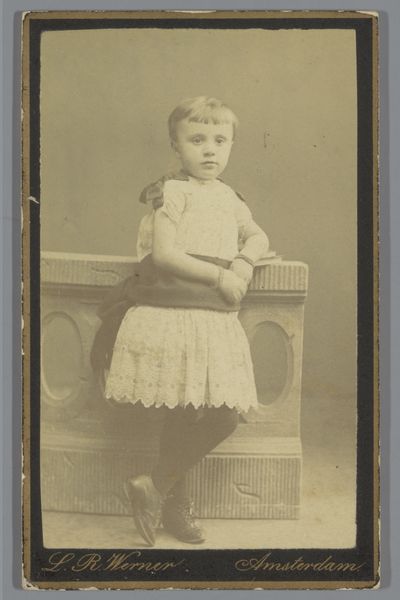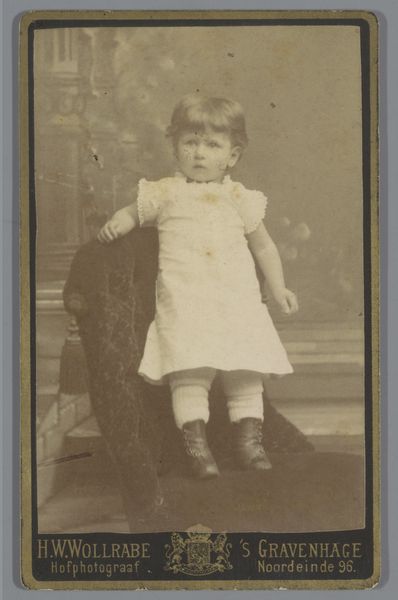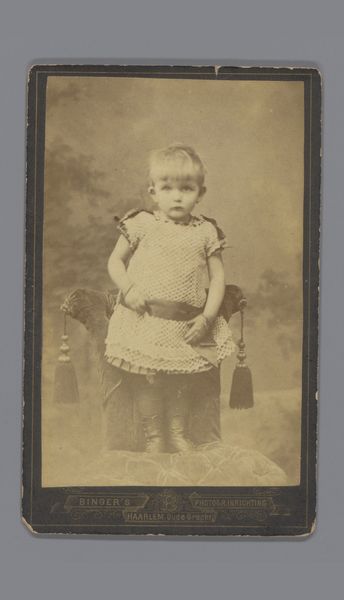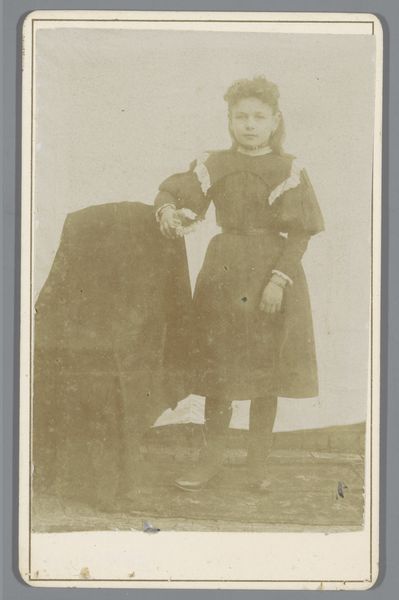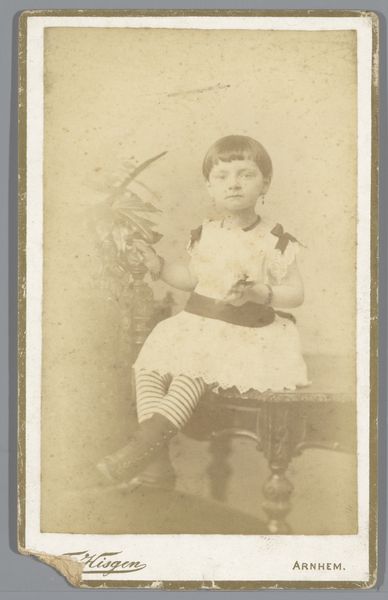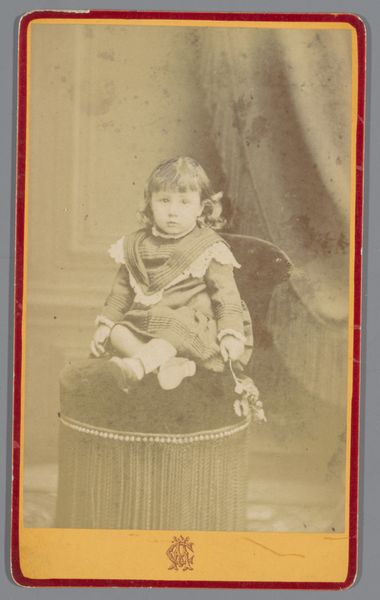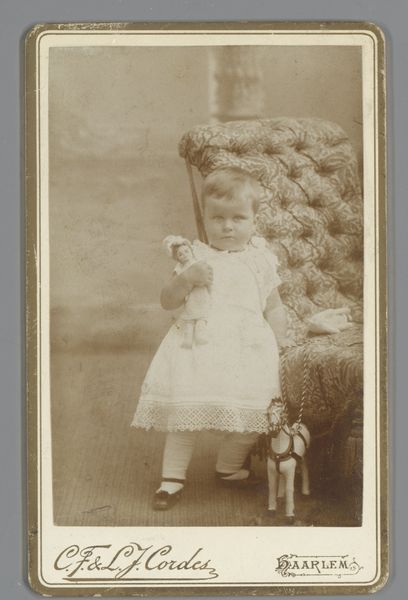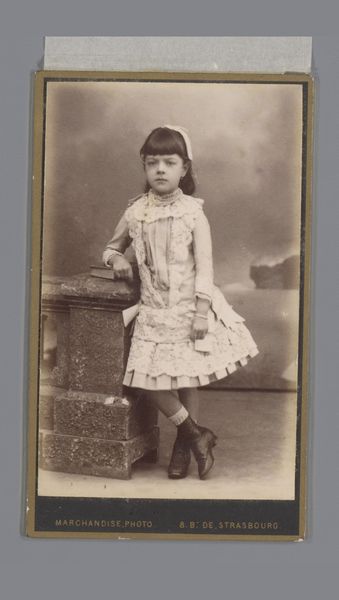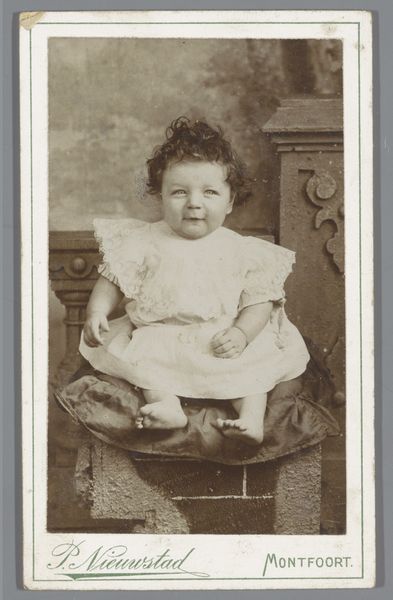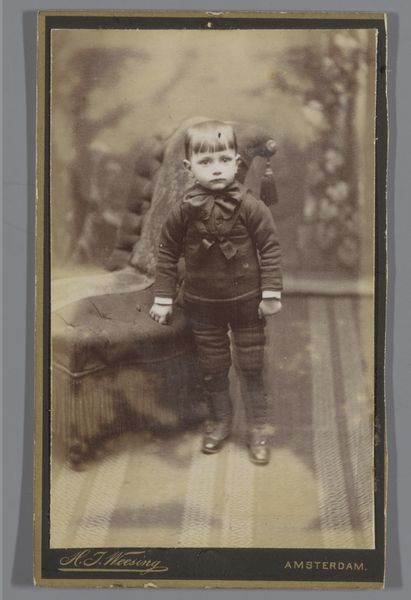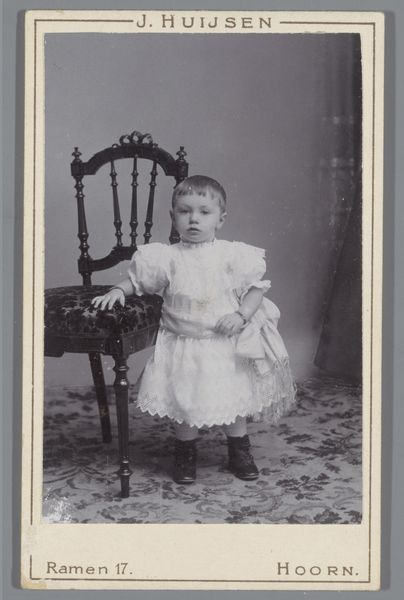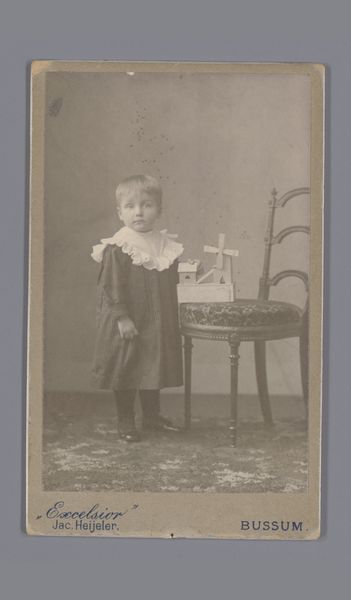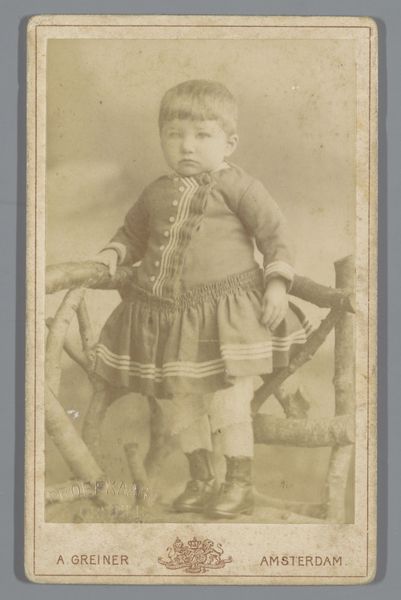
photography, gelatin-silver-print
#
portrait
#
photography
#
gelatin-silver-print
#
genre-painting
#
paper medium
#
realism
Dimensions: height 104 mm, width 65 mm
Copyright: Rijks Museum: Open Domain
Editor: So, this gelatin-silver print, "Portret van een onbekend meisje met een pop", roughly from 1900-1906 by W.G. Kuijer & Zonen... It has a quaint feel, almost melancholic. It's a pretty simple composition of a young girl posed with her doll. What are your thoughts on this piece? Curator: It's fascinating to consider how photography like this participated in shaping social norms. Portraiture was becoming more accessible, democratizing the practice of image-making. Think about it: what did it mean for a family to choose to represent their child this way, during this period? Was this about documentation, aspiration, or both? Editor: Hmm, good question! It probably depended on the family's social class, right? Was photography viewed as art, or simply a record? Curator: Exactly! Early photography had an uneasy relationship with the art world. Photography offered a new kind of "truth," but also the potential for manipulation through posing, backdrop, and developing techniques. How might these elements influence our perception of childhood during the turn of the century? The setting is staged. Even her velvet dress signifies status. Is she really who the portrait seems to indicate? Editor: So, maybe this is less of a spontaneous snapshot and more of a constructed identity through photography? Curator: Precisely. And look how the doll mimics the young girl, raising questions about socialization and performative roles, and the messages a girl received about who to be in that era. Who does this image really serve, and what narratives does it subtly enforce? Editor: That's really made me think about photography's role beyond just documentation; it reflects and reinforces societal values, too. Thanks! Curator: My pleasure! I’ll never look at historical portraiture in the same way, and hopefully neither will our audience.
Comments
No comments
Be the first to comment and join the conversation on the ultimate creative platform.
